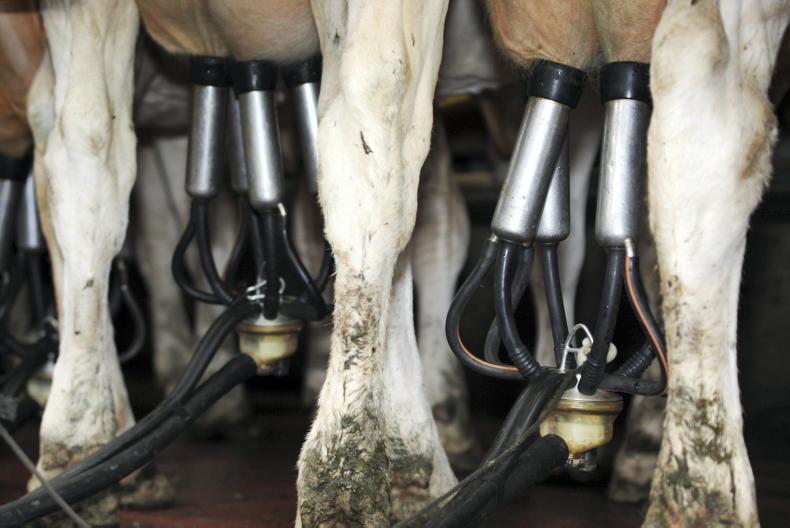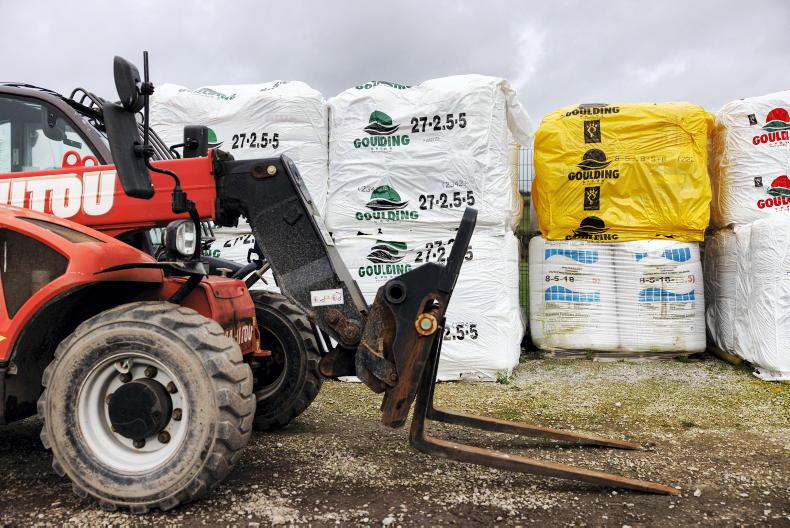Following a meeting with the Minister for Agriculture Michael Creed, beef and dairy bosses are now setting out their demands with opposition parties.
Dairy Industry Ireland (DII) met with the Fianna Fáil front bench on Wednesday this week.
It has given them a 13-point list that would "ensure the continued success of the dairy industry on the island of Ireland".
Less than seven weeks
“With less than seven weeks remaining until exit day, we still hope that the UK government will deliver a deal that will work for all people in the UK, Ireland and across Europe, but, at present, there is no clear path out of the political mess created and we are doing our utmost to ensure dairy is not collateral damage,” DII director Conor Mulvihill said.
“We completely support the Government’s position of implementing the withdrawal agreement on the table and no border on the island of Ireland.”
Dairy Industry Ireland recommendations
Transition period - even in a no-deal scenario, a freeze on the imposition of tariffs.Status quo for origin labelling for milk should allow products produced in NI, with milk from NI, to be British or Irish, and dairy products processed in the south be called Irish or EU, as currently allows.Inward and outward processing should be cleared for milk going north and south of the border for processing into products to minimise disruption. Revenue officials in the UK and Ireland need to come to a quick agreement on this.Work to be done immediately with DEARA in NI and DAFM in the south to ensure issues around exports, transport and veterinary issues are as streamlined as possible for farmers and the company.Allow companies claim VAT as an input credit at the same time as declaring their liability in order to minimise cashflow needs. This VAT deferral licence regime already exists in the Netherlands.Introduce trade support measures, including further export trade financing and export credit guarantees, to support the continued development of international export markets.Introduce direct supports for dairy processors looking to re-tool and re-invest in plant and machinery to produce product lines for new markets.Avoid regulatory divergence in standards to ensure all product is eligible to go into the UK, EU and world markets unhindered.Farmers will need direct income aid in the event of sterling depreciation following a no-deal Brexit. They will also need direct producer supports, basic payment top-ups and emergency market supports.Farmers may also require structural and adjustment support measures to cope with the additional costs and long-term devaluation of returns from the UK market.Put in place a multi-annual framework for funding Brexit mitigation within a temporary EU state aid framework. Funds amounting to 5% of the value of current annual export sales to the UK will be needed annually from domestic and EU sources for three years. Funds should be targeted at supporting innovation, market diversification, upskilling and capital expenditure in equipment and machinery.Introduce an enterprise stabilisation fund. This would enable short-term financing like the supports that were introduced in 2009 that helped firms through the financial crisis and an increase in de-minimus levels of state aid.Introduce additional marketing and innovation supports for companies looking to reformulate, re-package or innovate their product lines for new markets.Solutions
Following the meeting with representatives from the agri-food industry, Fianna Fáil spokesperson on Brexit Lisa Chambers said the Government has offered very little in the way of support or solutions.
“Whilst diversifying into new markets is of course welcome, it can take years to make inroads in this regard,” Chambers said.
“Our agri-food industry has worked tremendously hard to build up their reputation and earn their place on UK shelves and any disruption to the east-west supply chain could see Irish products lose their market share and be replaced with products from other countries which would have long-term negative implications for the sector.”
Read more
Beef and dairy bosses demand Brexit action from Creed
Following a meeting with the Minister for Agriculture Michael Creed, beef and dairy bosses are now setting out their demands with opposition parties.
Dairy Industry Ireland (DII) met with the Fianna Fáil front bench on Wednesday this week.
It has given them a 13-point list that would "ensure the continued success of the dairy industry on the island of Ireland".
Less than seven weeks
“With less than seven weeks remaining until exit day, we still hope that the UK government will deliver a deal that will work for all people in the UK, Ireland and across Europe, but, at present, there is no clear path out of the political mess created and we are doing our utmost to ensure dairy is not collateral damage,” DII director Conor Mulvihill said.
“We completely support the Government’s position of implementing the withdrawal agreement on the table and no border on the island of Ireland.”
Dairy Industry Ireland recommendations
Transition period - even in a no-deal scenario, a freeze on the imposition of tariffs.Status quo for origin labelling for milk should allow products produced in NI, with milk from NI, to be British or Irish, and dairy products processed in the south be called Irish or EU, as currently allows.Inward and outward processing should be cleared for milk going north and south of the border for processing into products to minimise disruption. Revenue officials in the UK and Ireland need to come to a quick agreement on this.Work to be done immediately with DEARA in NI and DAFM in the south to ensure issues around exports, transport and veterinary issues are as streamlined as possible for farmers and the company.Allow companies claim VAT as an input credit at the same time as declaring their liability in order to minimise cashflow needs. This VAT deferral licence regime already exists in the Netherlands.Introduce trade support measures, including further export trade financing and export credit guarantees, to support the continued development of international export markets.Introduce direct supports for dairy processors looking to re-tool and re-invest in plant and machinery to produce product lines for new markets.Avoid regulatory divergence in standards to ensure all product is eligible to go into the UK, EU and world markets unhindered.Farmers will need direct income aid in the event of sterling depreciation following a no-deal Brexit. They will also need direct producer supports, basic payment top-ups and emergency market supports.Farmers may also require structural and adjustment support measures to cope with the additional costs and long-term devaluation of returns from the UK market.Put in place a multi-annual framework for funding Brexit mitigation within a temporary EU state aid framework. Funds amounting to 5% of the value of current annual export sales to the UK will be needed annually from domestic and EU sources for three years. Funds should be targeted at supporting innovation, market diversification, upskilling and capital expenditure in equipment and machinery.Introduce an enterprise stabilisation fund. This would enable short-term financing like the supports that were introduced in 2009 that helped firms through the financial crisis and an increase in de-minimus levels of state aid.Introduce additional marketing and innovation supports for companies looking to reformulate, re-package or innovate their product lines for new markets.Solutions
Following the meeting with representatives from the agri-food industry, Fianna Fáil spokesperson on Brexit Lisa Chambers said the Government has offered very little in the way of support or solutions.
“Whilst diversifying into new markets is of course welcome, it can take years to make inroads in this regard,” Chambers said.
“Our agri-food industry has worked tremendously hard to build up their reputation and earn their place on UK shelves and any disruption to the east-west supply chain could see Irish products lose their market share and be replaced with products from other countries which would have long-term negative implications for the sector.”
Read more
Beef and dairy bosses demand Brexit action from Creed










SHARING OPTIONS